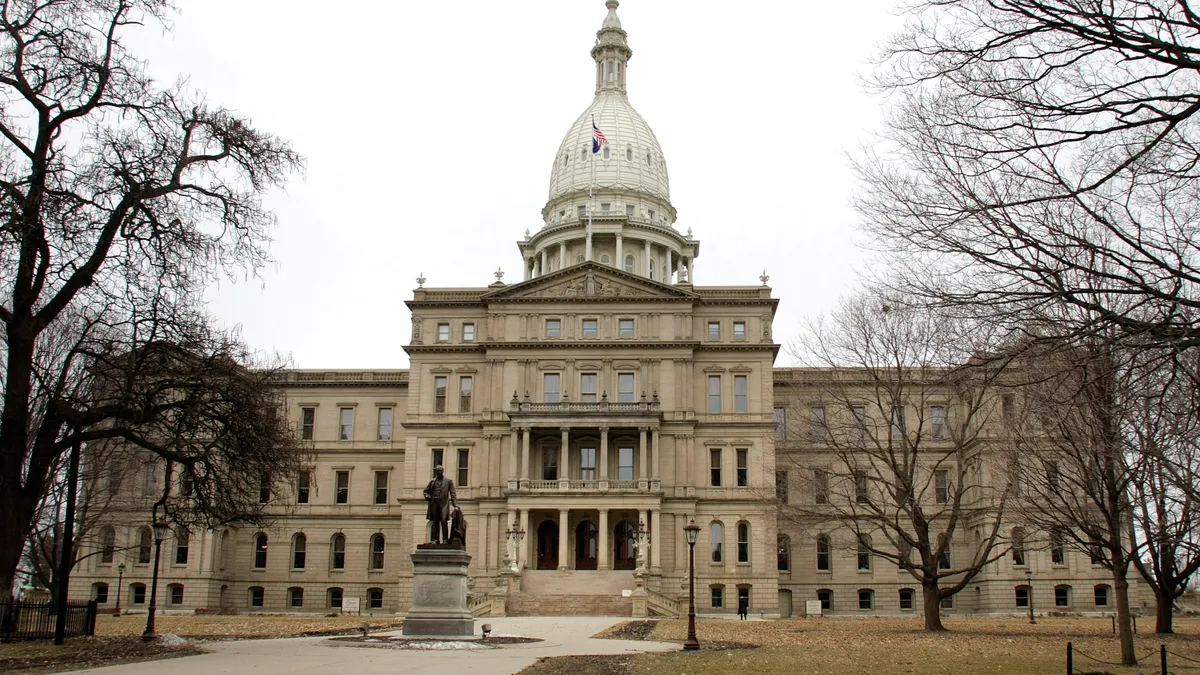Dive Brief:
- A three-judge panel on the Michigan Court of Appeals reversed a lawsuit aimed at undoing a legislative weakening of the state’s labor law, overturning a finding by a lower court that laws altering a wage initiative were unconstitutional, according to a judgment filed in the case on Jan. 26.
- The reversal will keep Michigan’s minimum wage below $12.05 until 2030, pending further legislative or court battles, and preserves the state’s tip credit system, with tipped workers receiving 38% of the state’s hourly minimum wage.
- The court case is another legal victory for the restaurant industry in its political battle to cap pay and preserve the tipped minimum wage.
Dive Insight:
In 2018, One Fair Wage and other labor advocates circulated a petition for a referendum to raise the minimum wage to $12 an hour by 2022 and gradually eliminate the tip credit by 2024. The Michigan state legislature’s Republican majority averted a ballot initiative by adopting and amending that petition, lowering the targeted wage and extending the timeline for its implementation out to 2030.
Labor groups sued over the adoption and amendment process, arguing the state legislature could not use the adopt and amend process to rewrite a law in the same legislative session that petition initiative was adopted by the legislature. A Michigan lower court sided with the labor advocates, and the state appealed, court records show.
A panel of three appellate court judges reversed the lower court’s finding last week in the latest political victory for restaurant employers. Judge Christopher Murray held the legislature could do as it pleased with propose initiatives.
“There are no limitations with respect to the amendment of initiated laws beyond the initial 40-session day period for legislative action,” Murray wrote. “The Legislature is free to amend laws adopted through the initiative process during the same legislative session.”
The case may go to the state supreme court. The Michigan Restaurant and Lodging Association lauded the reversal in a press release.
While this fight over Michigan’s tipped minimum wage began in 2018, 2023 is likely to be a politically contentious year for restaurants. Labor allies are moving to implement a fast food council law in Virginia, and an expensive referendum fight over a similar law is brewing in California. Washington, D.C., voted to end the sub-minimum wage, though the city council in the District has delayed the implementation of that law.










